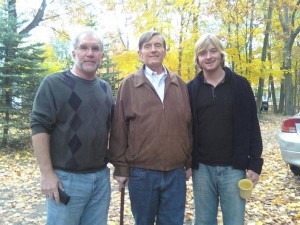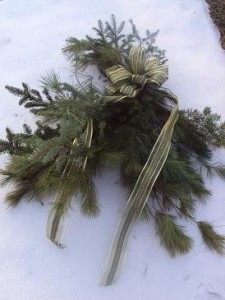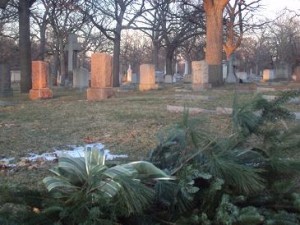After a husband dies, his wife is automatically enrolled in Record-keeping 101. The struggles we‘ve heard about for new widows are legendary, stories of husbands never having told their wives about their income or bank accounts, and wives having to rely on guesswork to unravel the mysteries.
Although Nate was a lawyer and knew the importance of keeping records, he wasn’t good at gathering them to a central location. At work he stacked manila folders atop file cabinets, credenzas, chairs, on the floor around his desk and in the foot well. Although he could put his finger on a specific sheet of paper at a moment’s notice, no one else could find a thing. And since he died, that’s been the dilemma facing all of us.
When someone we love is terminally ill, we push “terminal” to the back of our minds and focus on “today”. Asking a sick person to give us information we’ll need after they’ve died is a touchy task. How do you sit with a clipboard voicing one question after another without tipping your hand that you’re thinking past his demise?
I have a dear friend who is 84 years old, whose husband of 60 years died last August. While visiting, I found her in the middle of transferring accounts from his name to hers. The task had become a mountain to climb, despite her having excellent business savvy and flawless records. “I work on it a little at a time,” she told me, “but then have to put it away. It’s exhausting.”
As we talked, I noticed multiple piles of manila folders on the floor around her favorite chair. She knew what was in each one, just as Nate knew. The only difference was her piles were two inches tall, and Nate’s were two feet.
At that time in late August, Nate and I knew nothing of his cancer. My heart went out to this friend having to struggle so long and hard with the paperwork of widowhood. At the end of our conversation, she showed me a stapled set of three papers entitled “Estate Administration Information Checklist.” It was all about deeds, trusts, contracts, wills, insurance policies, stocks, bank accounts, loans, titles, pensions, taxes and other documents. There were 69 items on the checklist.
It occurred to me that if anything happened to Nate, I wasn’t equipped to handle such a list. My friend then gave it to me. “You can have it,” she said. “It’s an extra copy.”
I took it with me and put it in a dresser drawer, planning to study it later. But in three weeks I’d been told my husband, too, was going to die. I knew I needed to pull out the list and ask Nate the hard questions, so I tucked it into my journal and saw its edge protruding every day, pressuring me to talk to him. My instinct, however, told me to enjoy each moment rather than spoil our time together with cold-hearted quizzing. After the first three of our six weeks had gone by, Nate wouldn’t have been able to answer the questions anyway.
Today I slipped into discouragement trying to make a chart of Nate’s doctors, their addresses, phone numbers, the dates of his appointments and what occurred there, over three years of time. All of a sudden, at a low moment, Nate sent me a message. Actually, he sent two.

Paging through old calendars looking for scheduling clues, I found one of his Post-it notes clinging to the month of May. He’d drawn a heart with a Cupid’s arrow on green paper. I’d seen his Post-it hearts before and recognized this as his “I love you” to me. Five calendar pages later, there was a second one, this time on a yellow Post-it. They were just the boost I needed to continue my hunt for information, and by the end of the day, Nate’s doctor list was complete.
“The Lord will guide you continually, giving you water when you are dry and restoring your strength. You will be like a well-watered garden, like an ever-flowing spring.” (Isaiah 58:11)



